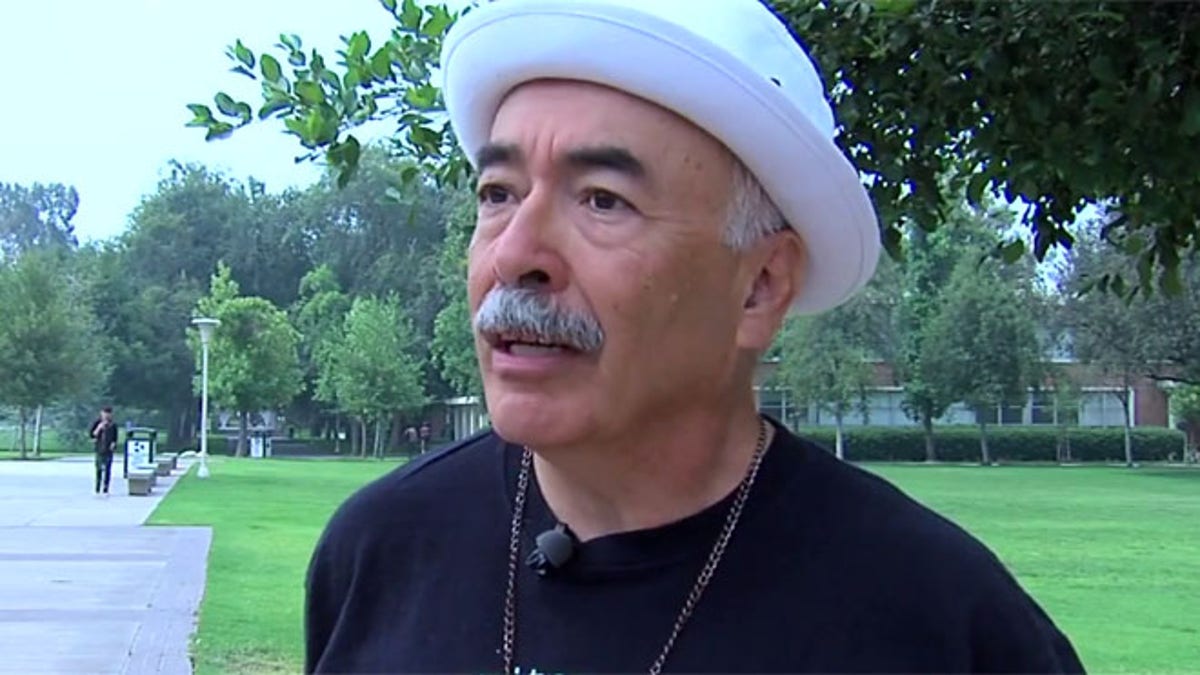
WASHINGTON, D.C. – Juan Felipe Herrera, the son of migrant farm workers in California, grew up speaking Spanish and became ashamed to speak at school in English. So he shut down.
He eventually found his voice through joining choirs in middle school and high school.
On Wednesday, the Library of Congress announced it has appointed Herrera as the nation’s 21st poet laureate for 2015 through 2016.
Herrera, 66, whose parents emigrated from Mexico, is set to become the nation’s first Latino poet laureate since the position was created in 1936.
"House on Mango Street" author Sandra Cisneros told Fox News Latino in a statement that she was “amazed, astonished, thrilled” with Herrera’s appointment.
“Juan Felipe is a kind of jazz messenger who will connect new people to poetry who have in the past been excluded," she said.
Dominican-American author Julia Alvarez told FNL in a statement that she is "tickled" by the "beautiful" news.
"I am tickled, as I always am, when Langston Hughes is proved right, once again. Writing in pre-Civil Rights era America, Hughes claimed, 'I, too, sing America. ... I, too, am America,'" she said. "And now, with Juan Felipe Herrera’s appointment, we can add, 'We, too, sing América. ... We, too, are América!'"
She added: "But also, we have to acknowledge that Juan Felipe isn’t just nuestro Juan Felipe. As poet laureate he belongs to all of us. That’s what’s beautiful about this. Those who write our poetry, sing our songs, tell our stories - what they make belongs to all of us. The little rivers and arroyos are all feeding the one big sea, even bigger than United Estates of America, the whole multicolored human family."
Herrera said he is humbled and overwhelmed to receive the appointment.
"Yes, I am the first Latino poet laureate in the United States, but I'm also here for everyone and from everyone. My voice is made by everyone's voices," Herrera said.
At the same time, Herrera said, he also wants to encourage more young Latino students to write and read and benefit from the Library of Congress' resources.
"You know, we speak about understanding each other, having those conversations nationwide — culturally, historically — and yet there's a lot of gaps," he said. "So I want to assist with closing the gap of knowing about and hearing about our Latino communities in terms of literature, in terms of writing. And I want our young Latinos and Latinas to write their hearts out and express their hearts out and let us all listen to each other."
Librarian of Congress James Billington said he sees in Herrera's poems the work of an American original.
"His poems engage in a serious sense of play — in language and in image — that I feel gives them enduring power," Billington said in a written statement. "I see how they champion voices, traditions and histories, as well as a cultural perspective, which is a vital part of our larger American identity."
Some of the works Herrera said he most enjoyed writing were captured in "Half the World in Light," a book of poems lauded for his experimentation and for documenting his Chicano experience in America.
Herrera was born in 1948 in Fowler, California. His family of migrant workers moved often, at times living in tents and trailers along roads. His father learned English by paying fellow workers pennies to teach him each new word.
Herrera eventually graduated from UCLA, earned graduate degrees at Stanford and the University of Iowa Writer's Workshop, and built a career in teaching.
From 2012 to 2015, Herrera served as poet laureate of California. In March, he retired from teaching creative writing at the University of California, Riverside and is now a visiting professor in ethnic studies at the University of Washington.
About his time as California poet laureate, Cisneros said, "I don't know what he did, but it must have been great because it caught the attention of people in D.C. He is going to enlighten people."
The laureate position involves crafting poetry projects and broadening the audience for poetry. The 2013-2014 poet laureate, Natasha Trethewey, launched a series of reports from locations nationwide for a "PBS NewsHour" poetry series to explore societal issues.
Based on reporting by the Associated Press.
